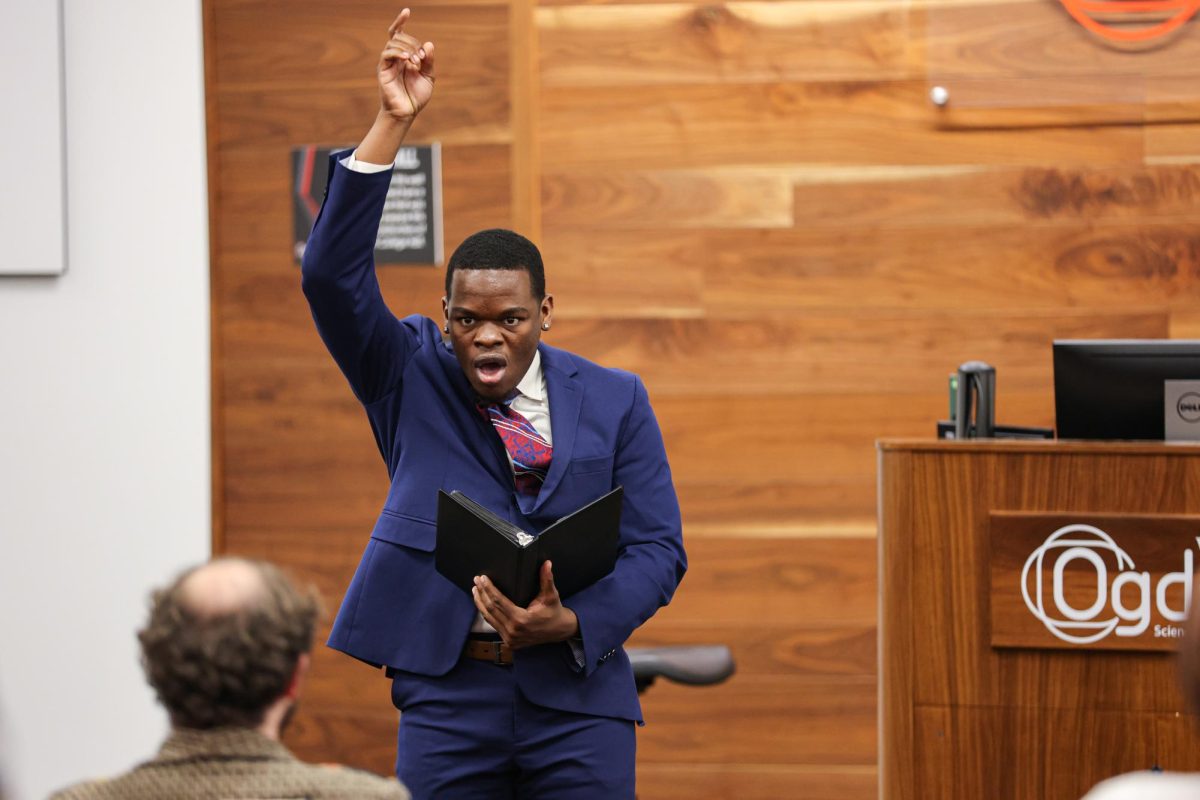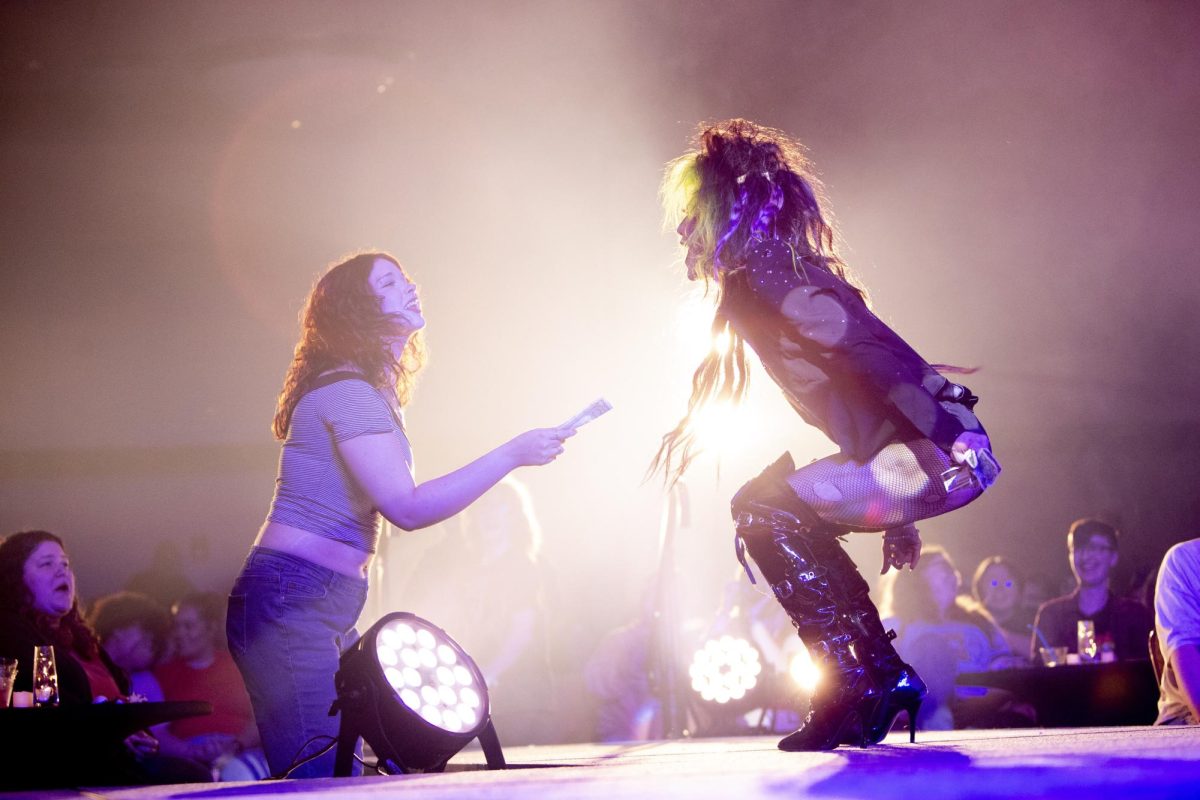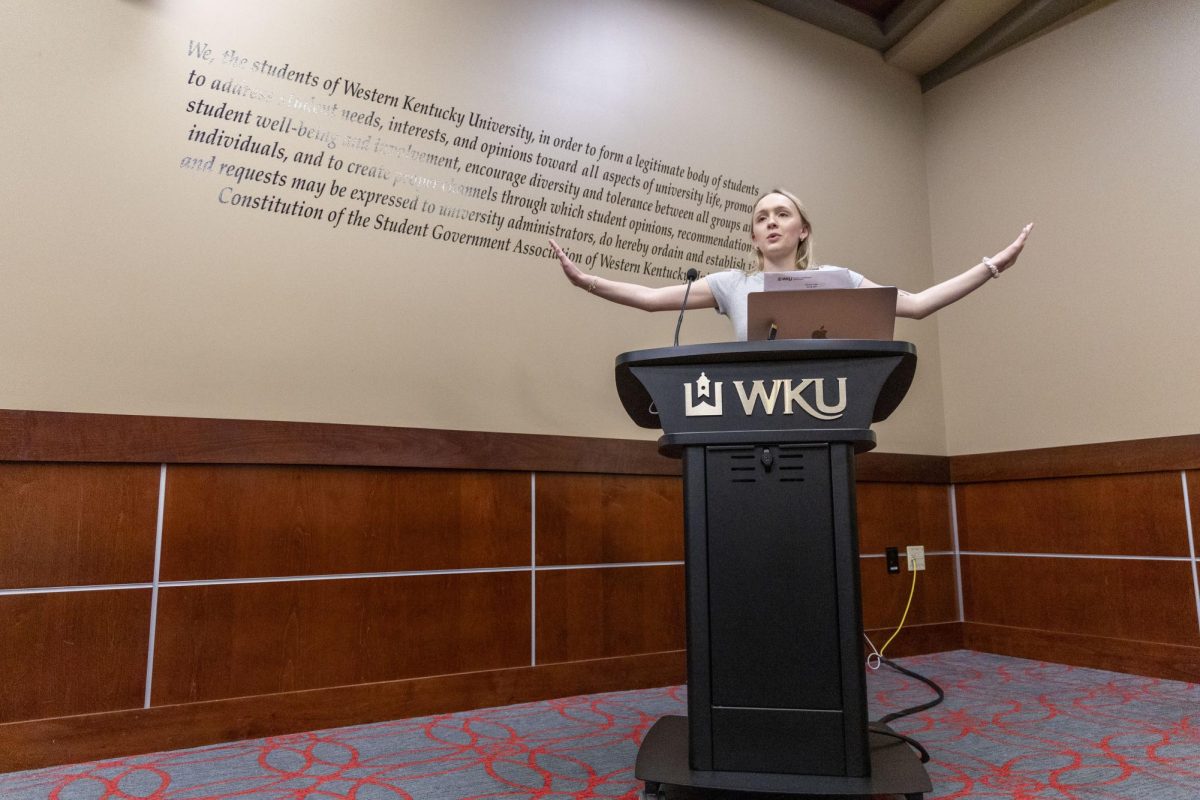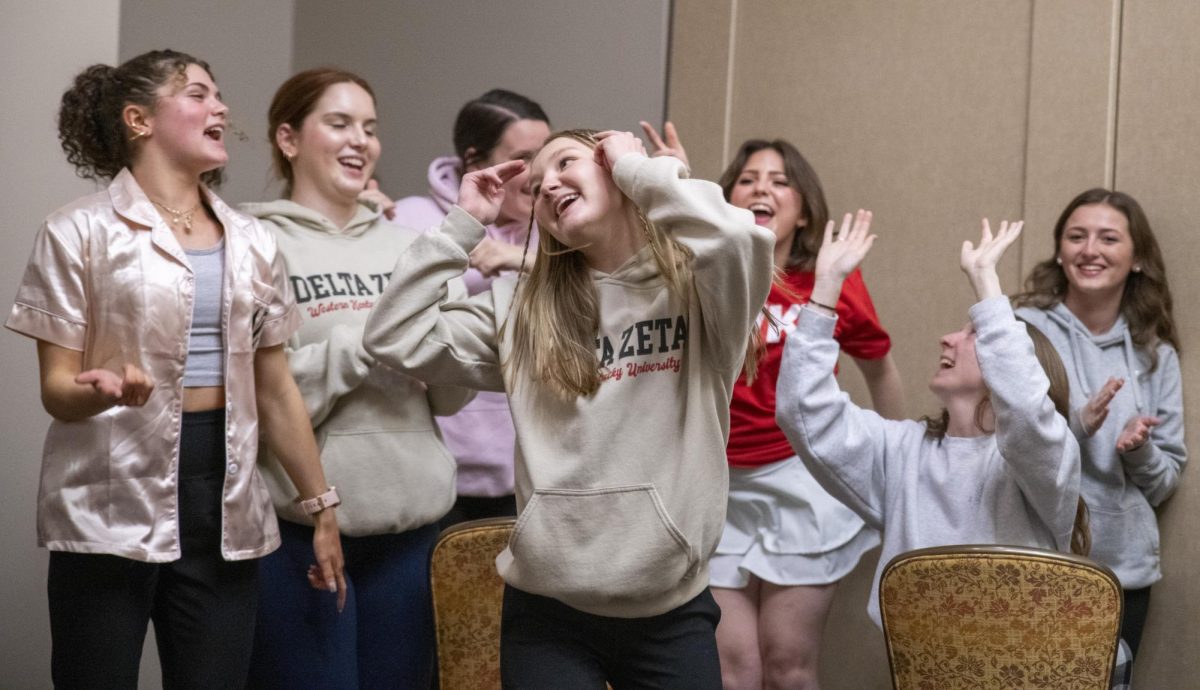The WKU Forensics team showcased four student-led presentations at Ogden Auditorium Thursday evening.
WKU’s speech and debate team is award-winning and nationally acclaimed. According to its website, it is “The only team to ever win the AFA NST Team Sweepstakes Championship, the NFA IE Team Sweepstakes Championship, and the NFA LD Team Sweepstakes championship in the same season.
They have done this nine times since 2004, the most recent of which being 2021.
The night began with an informative speech by Christian Butterfield. The senior creative writing major spoke about the history of autism in literature and the ways that it has been depicted or misconstrued throughout history.
“Autism itself exists throughout history, including literary history,” Butterfield said. “You’ve likely read text through the lens of gender, race, class, so consider this a tutorial on autistic literary criticism.”
The main crux of Butterfield’s speech was autistic literature and the study of it, or lack thereof, in the field.
The “nascent field,” as Butterfield calls it, is a field that has not nearly enough research dedicated to it. He also spoke about the speculative diagnosis of dead authors and its possible damage.
Butterfield also talked about characters who exhibit symptoms of autism without having a confirmed diagnosis.
“Few texts actually confirm autistic identity, but autistic traits abound. Consider Don Quixote’s social unawareness, Sherlock Holmes’s affinity for patterns, or Katniss Everdeen’s blunt demeanor. All evidence of a touch of autism.” Butterfield said.
Citing the “Imagining Autism: Fiction and Stereotypes on the Spectrum” by Sonya Loftis, Butterfield talked about character archetypes that are rooted in autistic behaviors but are never labeled as such.
“The absent-minded professor or manic pixie dream girl serve as makeshift diagnostic labels. Pre-packaging autisticness without ever saying autism. These autistic archetypes coincide with autistic themes like loneliness, obsession or social performance,” Butterfield said.
Butterfield’s speech was followed by senior public relations major Cecilia Alali, who gave a dramatic prose reading centered around racism as it relates to representation in stories.
“Rachel Zegler’s casting as Snow White in the titular live-action [movie] still strikes a chord with anti-woke fanatics,” Alali said. “Dr. Sharon Blackie explains the whole point of oral folk tradition is to reflect the lives of the folk, specifically how they shift and change over time.”
“Fairy tales are not static,” Alali added.
Alali’s piece puts an afro-centric spin on the classic story, giving its titular character as well as the seven dwarves dark skin. Notably in her retelling of this story, there was no prince or poison apple. Instead the princess is killed by a poison comb and saved by the eldest dwarf.
Following Alali was sophomore Nik Shintgen and junior Joshua St. Peter in a Lincoln-Douglas debate demonstration.
The debate surrounded artificial intelligence, St. Peter took the affirmative position and Shintgen took the negative stance.
Shintgen began with a timed explanation of his position, talking about the racism baked into facial recognition technology and the bias in the data it is fed.
“Many jurisdictions use mugshot databases with face recognition, but using mug shots recycles racist racial bias, supercharging that bias with 21st-century technology, black people face arrests at far higher rates,” Shintgen said.
Following this was a brief question and answer segment with St. Peter asking questions that Shintgen would answer. Then St. Peter gave his timed explanation about the benefits of AI that, as he began to run out of time, became too fast for many to understand.
“AI is really good at analyzing crime and removes police in these situations,” He said. “Technology cannot replace human police, and AI can assist by automatically collecting the necessary data, reducing the time police spend reporting.”
Once the debate was concluded, freshman computer science major Aquilla Dunn did a program poetry presentation.
Dunn read from a few selected readings, all of which revolved around his being a gay black man.
“In their research on LGBTQ child and adolescent development, psychotherapist Arielle Jacobson found that participants reported signs of identity, repression and the act of mask and sexuality,” Dunn said.

Dunn’s performance covered topics like the idea of fitting into a standard of masculinity or hiding queerness to fit into society and incorporated Dunn’s self-taught dance background.
Dunn was followed by senior Jonah Jackson and sophomore Finn Larson.
Larson, a theater and political science double major, and Jackson, a broadcasting major, performed a program about the price of greatness.
Their piece was a selection of readings tied into a series of scenes from the Damien Chazelle film “Whiplash.” Larson played Miles Tellers’ role and Jackson played J.K. Simmons’ role.
Using only binders, the two mimed drumming, danced and delivered the film’s intense dialogue.
“I think it’s the best movie ever,” Jackson told the Herald.
News Reporter Malone Farmer can be reached at james.farmer674@topper.wku.edu.








